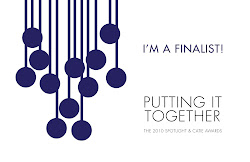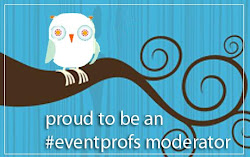 Sit for 5 minutes with any idea and you are certain to come up with more to say. Hence a part two to my last blog post. I wanted to spend a bit more time on bullet 5 from the last post: Events can be content for education/there is education in the experience.
Sit for 5 minutes with any idea and you are certain to come up with more to say. Hence a part two to my last blog post. I wanted to spend a bit more time on bullet 5 from the last post: Events can be content for education/there is education in the experience.This appears to me so obvious, it strikes me as surprising that experiential learning at event conferences tends to be a foreign idea. There is this tremendous rivalry between the "social" events and the "education" sessions, but I have never understood why the two have been put at odds, other than to say that there is a track record of "social" events produced as parties, not as educational tools. But I find it truly unfair as a paying attendee (and recently a producer of one of these events) to be short-changed by conferences panning off these events as purely social exercises. Without fail at each conference event I can point to lessons and learning (important caveat) I have made. I can count on one hand the number of meaningful educational class sessions I have attended in the past six years.
Ask me and I will tell you that part of the problem is that the showcasing and award events at conferences do not know what purpose they really serve (or are not open to serving as a formal educational opportunity, though they inevitably always serve as passive education). While I am certain people will disagree with me, the role of an event at an event industry conference HAS to be bigger than networking and celebratory. These experiences should represent the best of what the business can do - displaying the process or professionally producing an event, emerging technologies, ideas, strategies and practices in delivering event experiences. They must be more than pretty parties. They must have goals and stick to them; they should take calculated risks and be OK falling forward when some don't pan out and others succeed.
If I ran a conference, I would love to attend this class: The day after the big showcase event or awards ceremony, the event team which worked on the event sits on a panel with a strong facilitator to discuss with the audience the process and design of the event, what was successful, and what challenges were faced and how were they overcome. This is NOT a class opportunity for the event team to brag, but requires extreme vulnerability on the teams part to host this live "actors studio" type discussion on the creation and execution of an event experienced by the audience. The audience can pose questions and help examine the choices that made that experience in 360 degree fashion. Now that would be a fun class.






